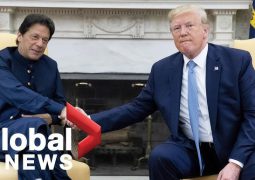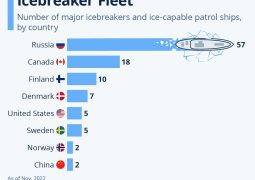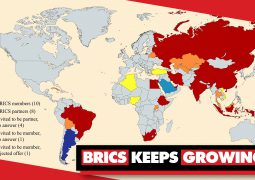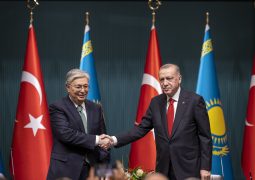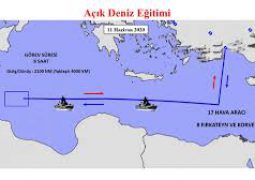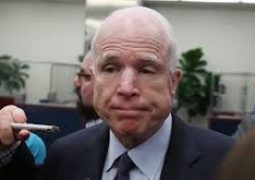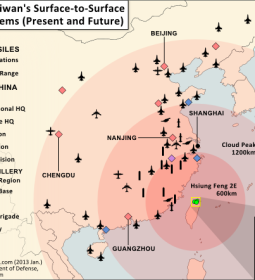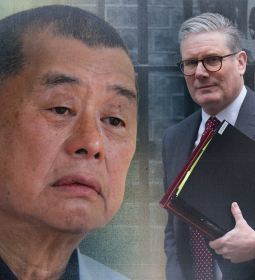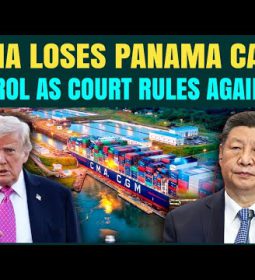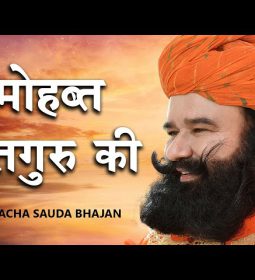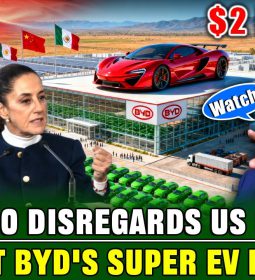Special interview with Prime Minister Datuk Seri Najib Tun Razak
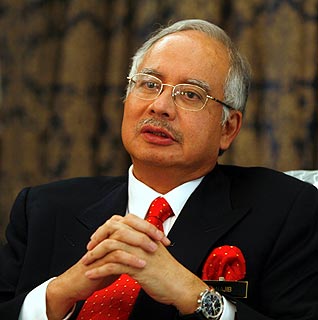
The following is the transcript of a special interview with Prime Minister Datuk Seri Najib Tun Razak in conjunction with the 2016 UMNO General Assembly moderated by Hamdan Ahmir and joined by Utusan Malaysia Editor Datuk Zulkefli Hamzah and RTM television personality Sayed Munawar Sayed Mohd Mustar.
QUESTION 1: Looking at the global economic environment which recorded moderate growth, Malaysia’s economy despite having shown moderate growth is still growing at 4.3 percent in the third quarter of 2016, which remained competitive and backed by a variety of economic resources.
At the same time, our inflation has remained manageable at 2 percent, our international reserve at the end of October this year remained at RM405.5 billion, the country’s current debt ratio to the Gross Domestic Product remains manageable compared to 103.4 percent in 1985; and according to World Bank standards, Malaysia is still on the right track. However, Datuk Seri, in spite of the economic landscape which is still viable and the controlled management of the country’s finances, there are still voices out there who declared that Malaysia will be bankrupt. Datuk Seri, are we heading towards to bankruptcy?
NAJIB: Of course not. Because what this small group claims is not backed by facts, with verified statements. Hamdan mentioned that we attained a growth rate of 4.3 percent. By coincidence, I was talking to President-elect Donald Trump two nights ago and he asked about Malaysia’s economy. I said our economy grew at 4.3 percent during the third quarter of 2016. He said, then Malaysia’s economy is very good. America’s economy grew at one percent. I want to achieve 4 percent. That was the spontaneous reaction of the President-elect of America. I just returned from attending the APEC conference. There, I met with representatives of Moody’s. They did not say anything to me…If we are heading towards a bankrupt economy, surely a rating agency like Moody’s, the representatives would tell me that they saw the situation heading towards disaster if we do not do anything. I saw Christine Lagarde, the Chief Executive of the IMF (International Monetary Fund).
Christine Lagarde did not say anything about us being in a crisis situation. So when I see all these and supported by facts, so when there are claims that we are a failed state, we will be bankrupt which are purely political attacks, and these must be explained to the people so that they don’t believe what is not backed by facts, and these facts must come from parties with no vested interests such as the ratings agencies, the World Bank, IMF, Bloomberg and such. Their views and analyses are actually more accurate than what is claimed by any party with political motives.
QUESTION 2: The UMNO Assembly this year is being held at a time when the world is experiencing new events which are more challenging, and changing in a sluggish economic climate. This includes prices of oil and major commodities which remain volatile, the effects of Brexit, the strengthening of the US dollar compared to other currencies and the election of Donald Trump, who as you said earlier, as the new President-elect of America in January which may lead to new policies which may have a negative impact on the direction of the regional trade and security, relations with Muslim countries, which Trump mentioned in his election campaign, international affairs involving America’s foreign policy which may be one-sided, the developments in the Middle-East which remain unresolved, the refugee and immigrant crises, human rights issues, global warming, as well as the threat of terrorism and religious extremists.
How does Datuk Seri see the effects of new economic, geopolitical developments and the global crises on Malaysia? For instance, there is talk that the strengthening of the US dollar compared to the ringgit seems to be an indicator of how Datuk Seri is managing the national economy, whether good or bad.
NAJIB: Actually, these developments are happening outside. They are happening in America. In Europe, in other countries. In America, their democratic system has elected a new President. The new president has not yet assumed his office, but during his campaign, he has said that if he was elected President, he would do certain things. If implemented, these will cause worry and negative reactions from other countries. I see the reality that President-elect Donald Trump has realised that not all statements made during campaigns can be implemented.
That is the reality. So now he is in the process of thinking what he will really do when he takes over in January next year. So to me, we are in a state of uncertainty now, but we cannot make any early conclusion, to assume about the new policy of Donald Trump’s government or administration, but the market has reacted. For instance, the expected rise in interest rates in America and certain policies had implications on the world, not just Malaysia. I discussed with the Governor of Bank Negara this morning. I looked at his charts, there are other currencies which are worse than the ringgit.
Some are better. We are in the middle. If we look at the basket of currencies, we have not gone down much, only in comparison to the American dollar. This is due to the effects of external factors which are outside our control. So I hope the people are not confused because these are external factors but what the government will do is to control the factors that we can control and to look for investment opportunities, for instance that was why I went to several countries like Germany, I went to China, I went to Japan, for what? To bring back investment to Malaysia and these are the efforts which we can make.
QUESTION 3: To spur economic growth, the government makes several initiatives to encourage foreign direct investment (FDI), such as via trade missions overseas and give several incentives to foreign investors.
However, the initiatives are viewed negatively by Pakatan Harapan which is supported by the DAP, and viralised daily and and interpreted from various angles to influence the people into rejecting the leadership of Datuk Seri and Barisan Nasional.
For instance Datuk Seri’s trade mission to China recently, which has been labeled as selling out Malaysia. What is Datuk Seri’s response to the people on issues harped on by opponents of the Barisan Nasional government?
NAJIB: So simple. If we do not bring in investment, they say we have failed but when we bring in investment they say we are selling the country. This is playing politics. Since when has bringing in investment is a sovereignty issue, it was not brought up in the past. What is the difference between investment from Japan, United States and Europe and investment from China?
This is investment. When there is investment, there will be generation of economy and when there is generation of economy, there will be job opportunities and transfer of technology.
Companies can get jobs from sub contract level to F Class and the government will determine local content according to percentage. This is government policy. Do not be influenced by such lies which are not in line with rational thinking.
QUESTION 4: Some critics say that at RM55 billion, the 600 Km East Coast Railway Line (ECRL), is too costly. What is Datuk Seri’s view?
NAJIB: This is untrue. We have to realise that every project is unique in term of topography. For instance, we may have to build a tunnel and cross over wetland which means additional cost.
The government will conduct benchmarking, evaluate projects elsewhere and conduct value management. We will ensure that the project cost can be defended and give value for money. This is our process.
On the whole, the project including the finacing provided by Exim Bank of China with attractive terms, this project can boost our economy. We expect the implementation of ECRL will result in 1.5 per cent growth of Gross Domestic Product (GDP) for the three states involved.
The connectivity to Port Klang will boost more economic activities. We need connectivity because without connectivity, we cannot open new areas such as those in the east coast.
The east coast needs injection if not there wil be a divide, the growth rate of the west coast will be higher than the east coast. We want to balance this.
This is one of the big projects to close the gap between the west coast and the east coast.
QUESTION 5: The cost of living has become the major grouse of the people. Although numerous measures had been introduced, it remains in the minds of the people. How does the government gives its assurance in ensuring they do not continue to feel the burden?
NAJIB: If we look at the inflation rate, inflation is only two per cent. If we look at the two per cent rate, the cost of living should not be a major issue. On the other hand, I am aware that it is still in the minds of the people which can be said as overall. As such, we should tackle it with several measures and programmes which had and will be done. For example, when we raised BR1M to RM1,200, its means that it will help the people to at least obtain their basic items of needs. That is number one which is taken into account. Secondly, affordable home projects. Thirdly, the government subsidies are maintained including for health, education, KR1M, we have done many, actually, to tackle the cost of living.
QUESTION 6: UMNO, which has existed for 70 years, continues to be given the mandate to rule. What should UMNO do to move forward in keeping with the technological changes, the people’s aspiration that UMNO stay strong?
NAJIB: I see this UMNO’s messaging (is not very efficient), maybe we need a more suitable mode to explain to the people. Due to the overwhelming number of social media which misinform, lie, (disseminate) half-truth half-untruth, the people are confused, duped. As such, we must escalate effort by using numerous methods and channels so that positive stories, good stories come to the knowledge of the people. I see there is still a gap, must work at it with more incentive. UMNO must be inclusive, don’t focus on certain groups or hardcore supporters only to to the point of no engagement with other groups. So, I want UMNO to be a more inclusive party. I often mentioned, feeling the pulse of the people, meaning we must know, there are quarters who are unhappy with us. Based on the outcome of the general election in the United States and Brexit, they underestimated the big group, who were marginalised in the globalisation process, technology and others. This mistake is on the heads of the leaders. So, actually, many factors we must be aware of. I wish to stress, UMNO must understand the national political landscape to decide on more accurate moves.
QUESTION 7: If we look back at it, Pakatan Harapan is led by DAP, while Barisan Nasional is led by UMNO. To what extent will Pakatan Harapan’s growth together with its coalition with the new parties have an impact on Barisan Nasional?
NAJIB: We must inform the people that the alternative to Barisan Nasional which is backed by UMNO is Pakatan Harapan which is backed by DAP. The people must know what DAP’s policies are, the policy of their struggle, their stand, what is it? For instance, of course they will do away with the bumiputera agenda. They will not support anything connected to the bumiputera agenda. Then there is the position of Islam. We want to uphold Islam and Islamic teachings. What is DAP’s stand on this? We have to consider all these because we only have two options. Either Barisan Nasional which is led by UMNO with our friends or Pakatan Harapan which was formerly Pakatan Rakyat because they kicked out PAS, so Pakatan Harapan is supported by DAP.
QUESTION 8: At the same time, critics condemn UMNO and connect it to sensitive issues about race and religion, with the aim of frightening the people. The opposition against UMNO is because Datuk Seri is the President and also the Prime Minister. How do you feel about this?
NAJIB: They cannot judge UMNO by the actions of one of two UMNO leaders. What they do when they are unhappy, that is not UMNO because these are acts commited by individuals or small groups. They must look at UMNO’s policies and UMNO will remain as a party which practices moderate policies based on the principle of wasatiyyah and we are a progressive party, which can bring about transformations or changes in the context of the current system.
Question 9: Talking about the pulse of the people, the challenges currently is because our sky is porous, outside elements which we cannot control, enter via the internet, and interestingly, we also see how via foreign funds, the flow from outside could mould attitudes, and I refer to the yellow shirt movement, meaning at the present, this challenge gives a major pressure because it enabled such movements to be brought about, said to be masterminded by foreign influences. This becomes a new challenge.
NAJIB: According to reports which we could access, namely, WikiLeaks and DCLeaks, they showed documents that George Soros via the Open Society Foundation had given funds to certain groups in our country like what had been done in other countries, for example the Orange Revolution in Ukraine. He also played a role in the Arab Spring, and the latest, the demonstrations in the United States following Donald Trump’s triumph.
The newspaper, USA Today claimed that the Open Society Foundation was involved in financing the protests. So, certain groups, as we know, they admitted to having received funds from the Open Society Foundation. So, the question is, there is indeed foreign interference in the business of our nation.
We cannot, as a sovereign nation that upholds the principle of democracy, allow others to decide who has the right to be our leaders. So, this is a fundamental question for me.
QUESTION 10: In relation to political development, how does Datuk Seri measure the strength of a new political party headed by Tun Dr Mahathir now which, with the advent of PAU (general election), is seen as becoming more aggressive, not only attacking UMNO but also the party president himself?
NAJIB: If we study the phenomenon when Parti Keadilan Rakyat (PKR), Anwar left UMNO, we saw at that time, the wave was more significant than what is happening today. So, this means it is not the same, the effect is not the same. But I realise that in divisions or Parliaments, there must be people who are unhappy for certain reasons, did not get what they wanted and others, disgruntled. So, they try to collect, pick up such people, to join their party and to oppose us, this I am aware of. And as quite a senior politician, one of the lessons is never to underestimate your opponent. As UMNO, we must never underestimate or underrate those who oppose us. So, we are not afraid of them. Being afraid is different. But we don’t underrate them and we must do what we must do to maintain the power that we have.
QUESTION 11: The Yellow Shirt which claimed to be a civil movement has been hijacked by the Opposition. What are Datuk Seri’s sentiments on this?
NAJIB: They portray to the people that it is a movement to verify our democratic system. The reality is they are always surrounded by Opposition leaders. This is not solely done in the name of NGO as it is closely linked to politics and the objective is to change the government led by UMNO.
QUESTION 12: How does Datuk Seri view the continuous criticisms from former UMNO leaders. Datuk Seri looks calm and unaffected by them. Datuk Seri’s main focus is to improve the national economy and continue the development agenda.
NAJIB: I understand the method and message of leaders such as Dr Mahathir. Alhamdulillah, I have the support of the party. This means that whatever he is trying to do such as toppling me from within have not succeeded. I also have the support of the MPs. Even PAS is not with him.
PAS did not support the Opposition move to reject Budget 2017. Efforts done in the name of Deklarasi Rakyat is unlawful and unconstitutional which is why the Conference of Rulers rejected it.
The option available is to convince the people and in the process he will attack me because to topple UMNO, he must attack the UMNO president.
When Dr Mahathir was the UMNO president, the same person who is around him today had said worse things about him.
Old video recordings show that he said terrible things about Dr Mahathir. This is a political game. Dr Mahathir has a super ego and always try to win. Since he has not succeeded, he will be more caustic with his words.
QUESTION 13: We are going to face PRU14. It could be the last PAU, if following the constitution. What is the importance and focus of PAU?
NAJIB: We must be seen as a party which has a strong motivation to fight as a party which rules the country. Meaning, we must show our unity, don’t be at loggerheads, because the confidence of the people lies in a political party which is united, our unity is important.
Secondly, to look after a party, what do we say, although we are divisional leaders, but the people would evaluate us as (speaking for the party) assurance to the party and must appear as a party which is concerned about the issues of the people. When we discuss in PAU, is not for us but what UMNO wants to do for the people, nation, what good can we can give to the people, this is what I want…a party which struggles for the people and nation.
QUESTION 14: The nature and model of an UMNO political party is introperspective of the interest of Bumiputra, how can the value be balanced?
NAJIB: This is my dilemma. For example, I speak as a President or PM. The people must understand this is PAU, not a budget speech, eve of Independence and others. This is a speech as UMNO President.
As such, my audience are the UMNO members. The Malays, Bumiputra must understand. I also must understand because I also hold the Prime Minister’s post…so, I cannot insult the non-Malays and non-Bumiputras. Our priority is the issues of UMNO, Islam and Bumiputra agenda. This does not mean we don’t care at all the rights and interests of other people. This is PAU.
QUESTION 15: Is it true UMNO and PAS are trying to cooperate in a quiet way, as such PAS is no longer attacking UMNO and PAS does not want to be in cahoot with Pakatan Harapan?
NAJIB: I see PAS today is not like the PAS of old. PAS today is more open, PAS today is committed in championing matters involving the interests of Muslims.
It is the same with UMNO, in many cases when involving the issues of Muslims, future of the nation. There are areas where we have the same opinion but we are not yet like in 1974 in the form of a mixed government. But the tension between UMNO and PAS which in the past reached to the grassroots, had diminished a lot, (we) are more comfortable. But we move in our own groups, in our respective parties, at times we differ in opinion, at times we have different stands but at times we could also have the same stand.
QUESTION 16: Like the 355 Bill issue?
NAJIB: Yes. Indeed that, what we do is the first, its is the requirement of Islam. This is the business of Muslims, but non-Muslims must understand, this is not hudud. This is raising the power to the Syariah Court and has nothing to do with non-Muslims at all. We, too, as a Barisan Nasional (BN) government, will indeed consult, soon we will discuss with the BN components so they will understand the actual aim of the amendment bill.
QUESTION 17: The power-sharing model which Datuk Seri mentioned is also related to component parties, how will UMNO, as the backbone of Barisan Nasional, handle the state sentiments specifically in Sabah and Sarawak, lately.
NAJIB: Yes, I understand too well there are parties trying to blow up these state issues as if we had withdrawn their rights and others. I have said several times in my speech that the government and I are very committed to the Malaysian Agreement 1963. Whatever we do, we must look at the agreement and we now must interpret whether our action, steps, and subsequently, at that moment, it is not contradictory or we withdraw their rights, unintentionally, the English say inadvertently, not purposely or is there something we should do. So, we are in the process right now, relooking at our interpretion and our action follow up, and I say, if something that we did, clearly took the rights of the people of Sabah and Sarawak, we are willing to correct it. But, it must be within the Malaysian Constitution and the issue of Sabah and Sarawak seceding, it is non-negotiable, don’t mention it, because it is one of the laws of the nation.
QUESTION 18: Moving forward Datuk Seri, the economic performance next year and subsequent years will leave deep impressions in the people and this will influence their political sentiments. How does Datuk Seri want to tackle the problem?
NAJIB: Yes, we won a general election during an economic recession. It was bad for us in Sarawak when we implemented the GST but we won big in the general election in Sarawak, Sungai Besar and Kuala Kangsar. So, if we can explain to the people this is not the fault of our weaknesses, this factor is beyond our control, I believe the people will understand that today what we do is the best for the people and we are ones who can meet their aspirations compared to the existing alternatives.
QUESTION 19: Datuk Seri talks about the Muslim community, Muslims are now being increasingly oppressed and mistreated. The latest is in Myanmar, we see it in front of our eyes. How can UMNO play its role in helping fellow Muslims and how we as Muslims can learn from what is happening now?
NAJIB: The biggest lesson is that foreign intervention in the affairs of Muslim countries would be extremely detrimental to Muslims. Conflicts that occurred today are due to foreign intervention in Muslim countries. When they intervened, there must also be agendas whether intentionally or unintentionally. Of course, they do not understand the situation in Muslim countries. That is why we must have a firm stand, do not allow foreigners to intervene. Secondly, we should practice the principles of unity of the ummah, not only in the country but universally. This means that, among the Muslim countries, our cooperation, whatever we do, our strategy should be strengthened. Malaysia alone will not be enough because this happens in other countries such as in Rakhine, Myanmar, we need the cooperation of the international community, the Organisation of Islamic Conference (OIC), ASEAN and the United Nations (UN).
QUESTION 20: There are many talks about the future, Datuk Seri has proposed the National Transformation 2050 (TN50) programme. At this opportunity, maybe you can give some space to the people to give their feedback relating to this idea.
NAJIB: We will start a discourse beginning next year as we need a lead time. We cannot wait until 2020 to begin it. We want to begin it now, so that by 2020 we already have the direction. In contrast to the Vision 2020 that was announced by the then prime minister which was from top to bottom. I want it to take a bottom-up approach which means that I want this discourse to start from the people at the grassroots level especially among the young people because one day, they will inherit the country. This is the fact and it will involve all components ini our country.
QUESTION 21: What is the difference between TN50 and Vision 2020.
NAJIB: It is too early for me to say. Do not want to pre-empt what the people say. We must have a document of direction which is comprehensive, owned by the people, sense of belonging, this is our right, it comes from the people, it is my aspiration. I do not want to state my stand until the last moment when we take the views, summarise as new national policy and vision to be used as the track in the next 30 years.
QUESTION 22: Aspiration for PAU.
NAJIB: I want UMNO to be seen as united, have confidence and a party which is very concerned about the issues of the people and the nation. The party must be responsible to champion the interest of the people and nation. The party must show a positive image to the people, so the people will like us, UMNO and leaders. — Bernama
- Previous Maria released from Sosma detention
- Next Malaysia will not tolerate foreign intervention in domestic affairs



